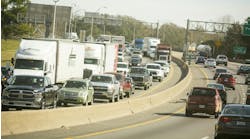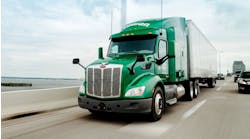All fleets face financial pressures, but managers of private fleets often are viewed as a cost center. Decisions about how trucks will be spec’ed and maintained are often made by finance and corporate people and not truck guys.
Owners of private fleets have much more to worry about than their trucks and much of the companies’ efforts and capital are focused on their main business. Trucks often are seen be these corporate executives as “necessary evils” to get their products from their manufacturing facilities to their customers.
As a result trucks might not get the attention they deserve. I am especially mindful of this as I prepare to attend the National Private Truck Council Annual Conference April 26-28 in Cincinnati. I am looking forward to attending the conference to learn more about what private fleets are doing to improve their fuel efficiency and to talk to them about the exciting opportunities in front of them when it comes to saving even more fuel.
These fleets face some challenges, but also have some advantages. One challenge resolves around route optimization. Since private fleets only haul their own goods, they must be especially diligent about how they route trucks to ensure they have as few empty miles as possible.
On the plus side are drivers. There tends to be less driver turnover at private fleets, which means drivers can be an integral part of any fuel efficiency efforts the fleet undertakes.
We see a number of fuel efficient technologies that will save private fleets money and in our Confidence Reports we include ROI calculators that allow fleet managers to plug in their own numbers to determine their fleet’s payback period. This information coupled with the real-world experiences of fleets using the more than 60 fuel saving technologies we’ve identified should make it easier for the private fleet manager to go to the finance guys and make a strong case for investing in some of these tested and proven technologies.
To learn more about possible fuel efficiency improvements for your private fleet come to our panel, Best Practices on Fuel Economy, Monday, April 27 at 9:15 a.m. Presenters include fleet leaders from Kellogg’s, Orscheln and Wegmans.
If you can’t make the session, look for me and my colleague, Dave Schaller, on the exhibit hall floor and at other convention events. We’ll be more than happy to share our fuel efficiency findings with you, learn about what you’re doing to reduce fuel consumption and find out what information you can use to make decisions about investing in fuel saving technology.
See you in Cincinnati!



